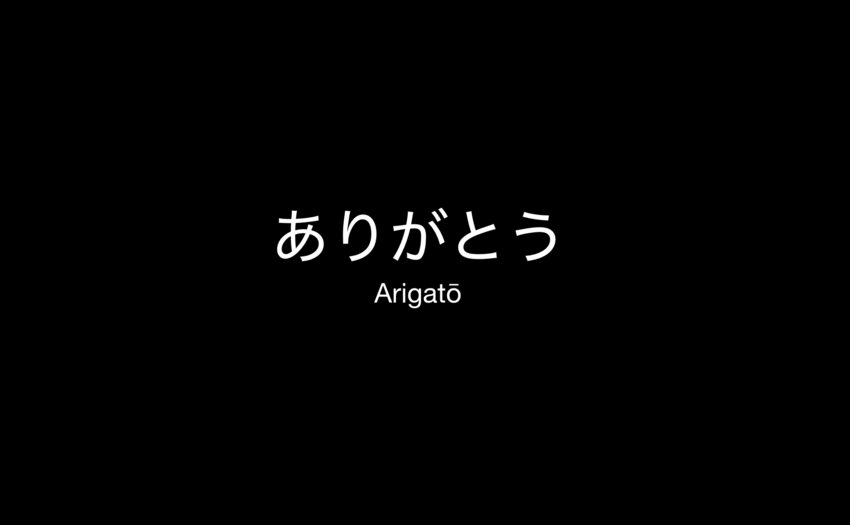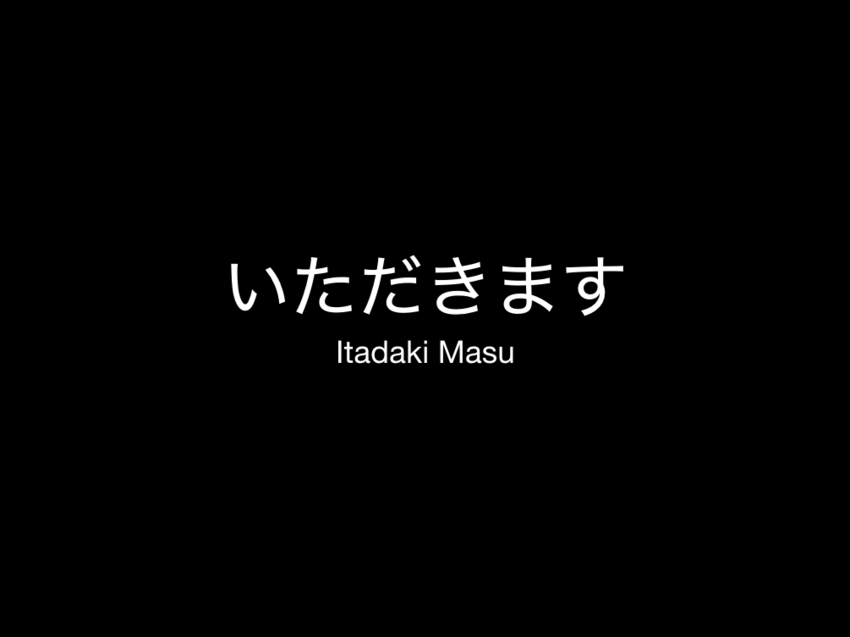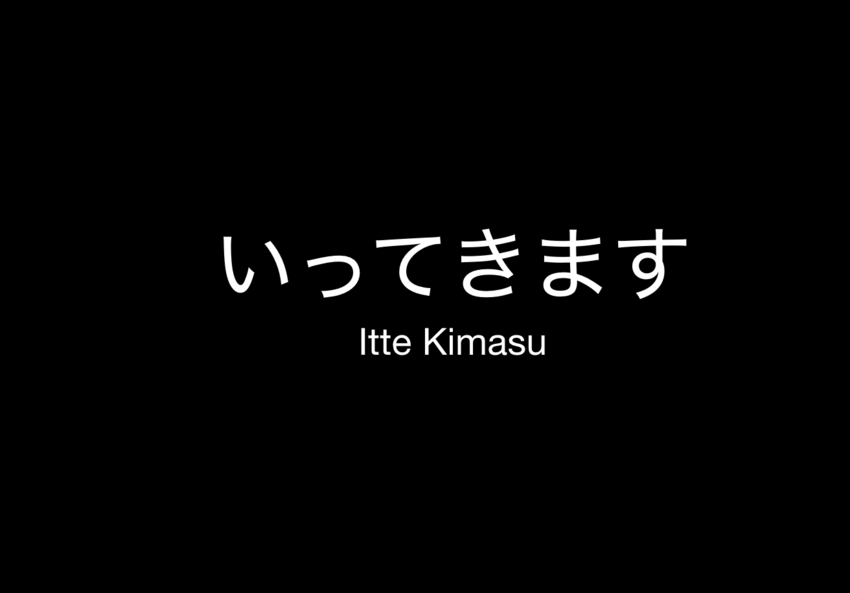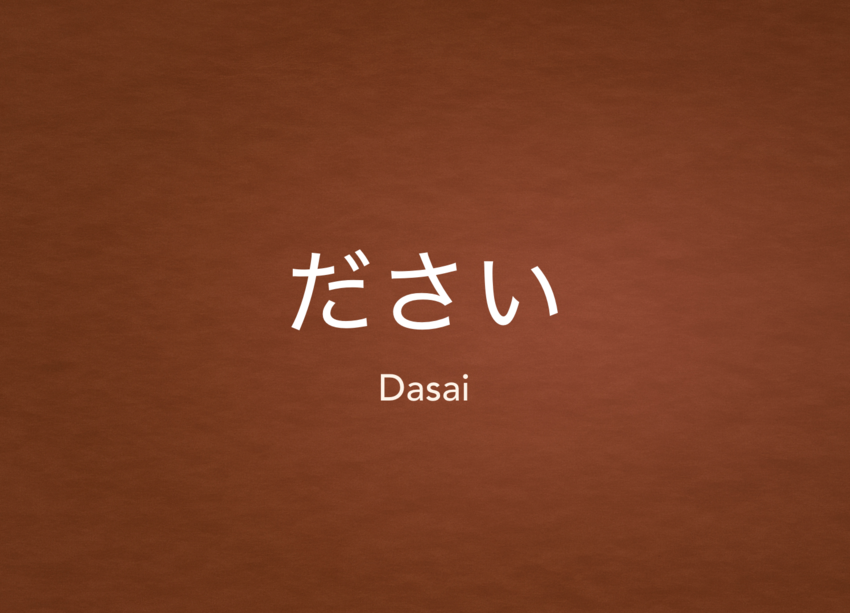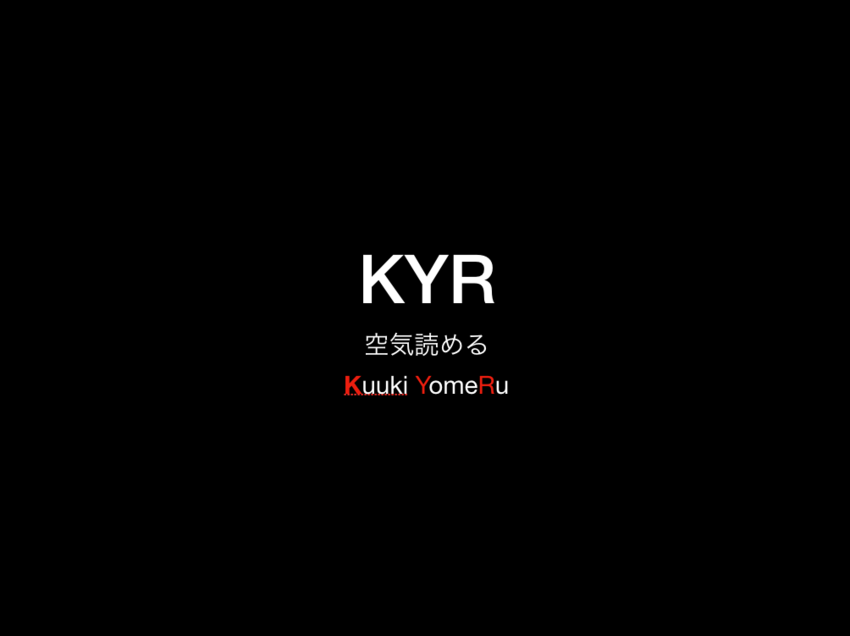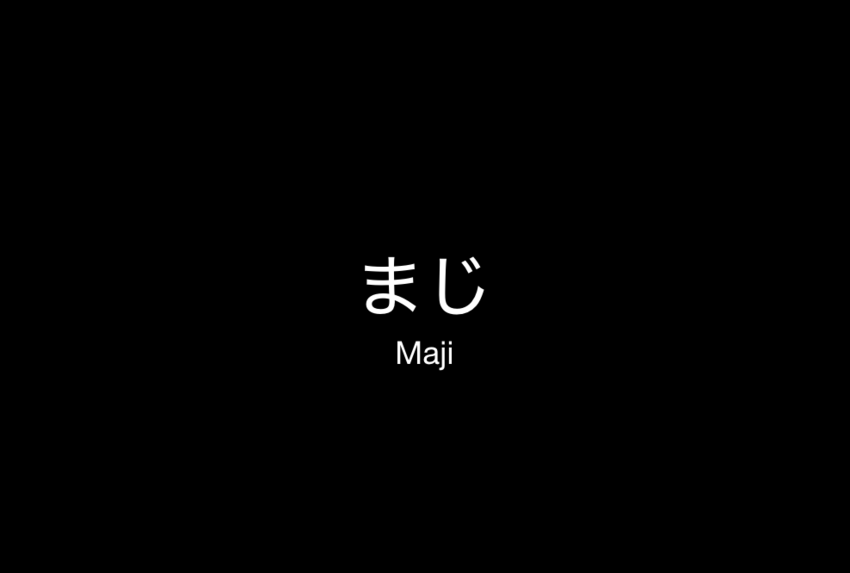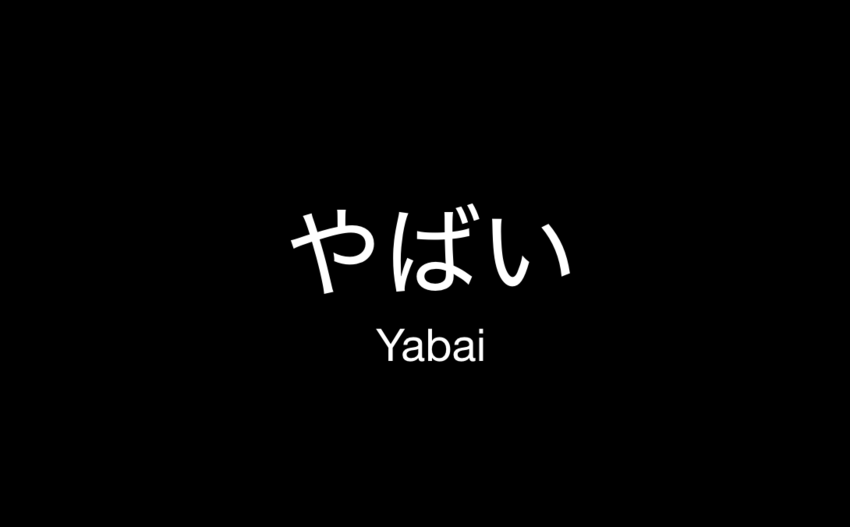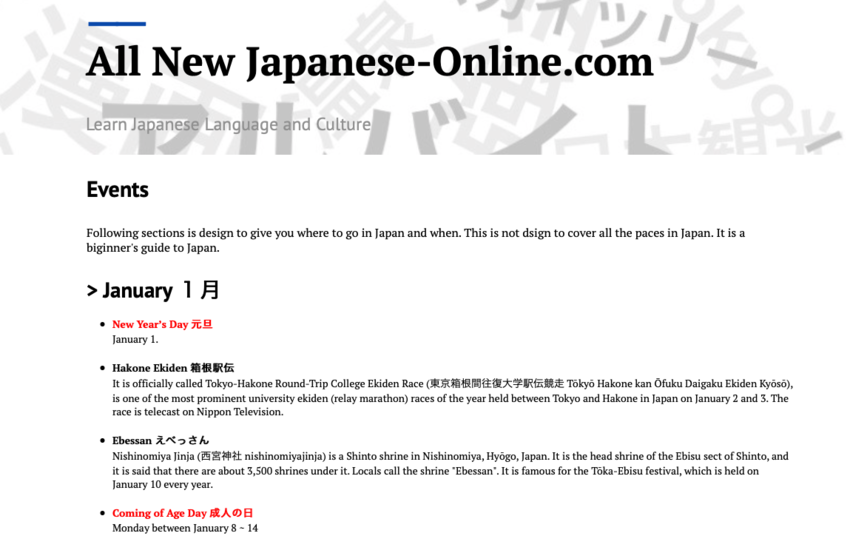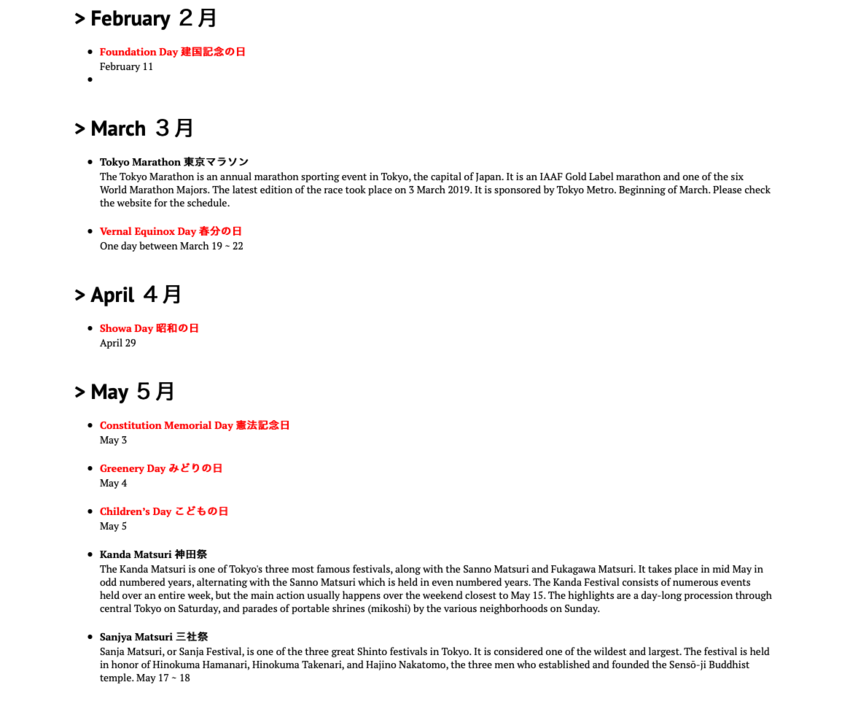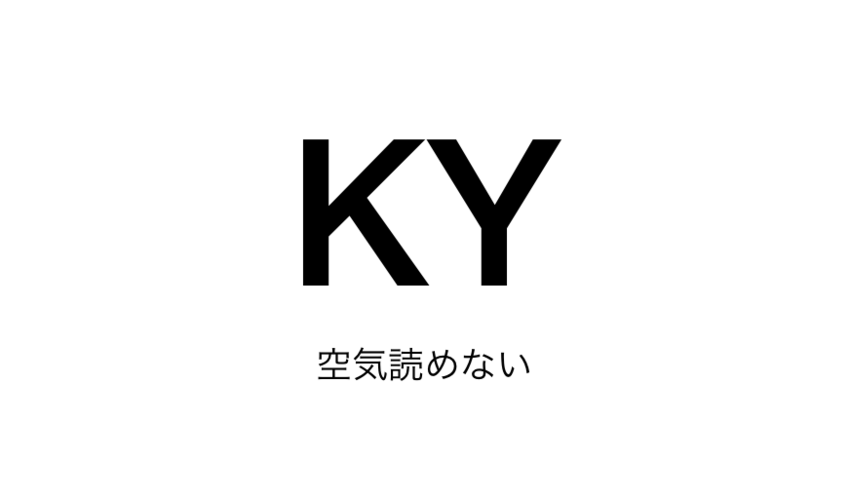Apr
2,
2019
いただきます Itadaki Masu
Apr
1,
2019
いってきます Itte Kimasu
When you leave home, you say "Ite Kimasu"
People who hear that usually say "Itte Rassyai" いてらっしゃい
Mar
31,
2019
ださい Dasai
adjective (keiyoushi)
It is used a lot. Try not to be called this way.
Mar
30,
2019
Japanese-Online.com
The contents are being built but still no images.
Mar
29,
2019
KYR 空気読める
KYR stands for Kuuki YomeRu ... Someone who can really understand what is going on.
Mar
27,
2019
まじ Maji
I think the word Maji came from the word Majime (Serious) and got shortened.
Maji means "Really?" or "Are you kidding?"
You can answer by saying "Maji" too.
So the conversation can go like this.
Question: まじ(Seroiusely?)
Answer: まじ(Seriously!)
Mar
26,
2019
やばい Yabai
But there is a second meaning for Yabai.
You can use やばい to express
- Super Good
- Extremely Well
- Unbelievable
Mar
26,
2019
Events in Japan
Mar
25,
2019
What is "KY"?
×
- If you are a bloguru member, please login.
Login - If you are not a bloguru member, you may request a free account here:
Request Account

